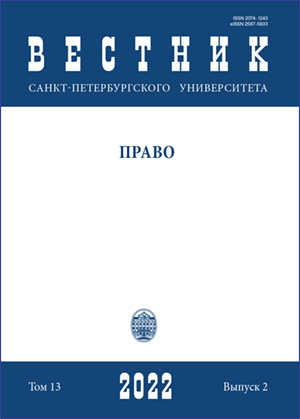“Regulatory guillotine” in education: Issues of legal regulation and implementation practice
DOI:
https://doi.org/10.21638/spbu14.2022.202Abstract
In the Russian Federation, as in all developed countries, reforming the activities of the political machine is a permanent process, where every phase has the emphasis on the most topical issues. If the administrative reform of 2004 solved the problem of structuring the system of executive authorities, then the reform of control supervision activity, which is currently ongoing, aims to revise the system of requirements for the main types of economic activity, reduce administrative barriers and other obstacles faced by individuals, who carried out such activity. Educational activity, as a single process of training and education, is one of the most important types of economic activity, and cannot keep out of the designated reforms. This article analyzes the practice of implementing reforms of control supervision activity, the provisions of the “regulatory guillotine” related to the education system. Attention is focused on such issues as mandatory requirements and mandatory requirements in education, systematization of legislation and the abolition of acts containing outdated norms and excess requirements. The concept of a system of mandatory requirements in educational activities is proposed, based on the basic principles of the reform of control supervision activity and the model of risks inherent in the education system. The conclusions mentioned in the article were prepared on the basis of changes in the legal regulation in the field of education over a period of two years (from 1 January 2020 to 1 January 2022).
Keywords:
regulatory guillotine, control and supervision activities, mandatory requirements, educational activities, licensing, accreditation, permitting activities, federal state requirements, educational program
Downloads
References
Downloads
Published
How to Cite
Issue
Section
License
Articles of "Vestnik of Saint Petersburg University. Law" are open access distributed under the terms of the License Agreement with Saint Petersburg State University, which permits to the authors unrestricted distribution and self-archiving free of charge.






